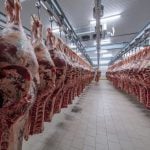Guelph researchers creating a more robust, transgenic canola
Crop breeders from the University of Guelph are well on their way to creating a better yielding, more stress-tolerant canola variety.
Early results are showing an increased seed yield of 35 per cent per plant. The researchers used gene editing to remove some canola genes and to stitch in other genetic information from maize. The results included bigger stems and increased biomass.
In early trials, the variety seems to perform well under drought and heat. It may also be less prone to lodging, though that’s yet to be proven in the field. Researchers said field trials at two sites in Ontario will hopefully demonstrate that the canola can maintain yield and biomass while also being protected from environmental stresses.
FCC and Results Driven Agriculture unveil AI extension advisor
Farm Credit Canada and Results Driven Agriculture unveiled a generative artificial intelligence tool this week. It’s designed to provide farmers with timely extension advice.
The tool, called Root, can gather information and learn from the latest agricultural research, and translate that into advice. It can also analyze images producers submit to identify parts and troubleshoot equipment issues.
FCC said the AI tool can help fill gaps left by a decline in local extension services.
Maintaining U.S. market access key amidst trade noise
Delaying trade negotiations may help Canada achieve a successful renegotiation of the Canada-United States-Mexico trade agreement, said panelists at a recent Seeds Canada conference.
Tyler McCann is managing director at the Canadian Agriculture Policy Institute. He said if Canada can keep its head down, cooler heads may have prevailed when it comes time to finalize an agreement. There may no longer be the desire to tear the country apart.
Canada is aiming for a near-term agreement to stabilize trading relations with the U.S. but it will have to deal with a review of CUSMA as soon as this fall. Thus far, CUSMA has helped Canada evade many U.S. tariffs.
The goal will be to keep what’s currently in the agreement, said Canadian Agri-Food Trade Alliance executive director Michael Harvey. Trade diversification is a good goal, he added, there’s no replacing trade to Canada’s next-door neighbor, one of the largest markets in the world.








